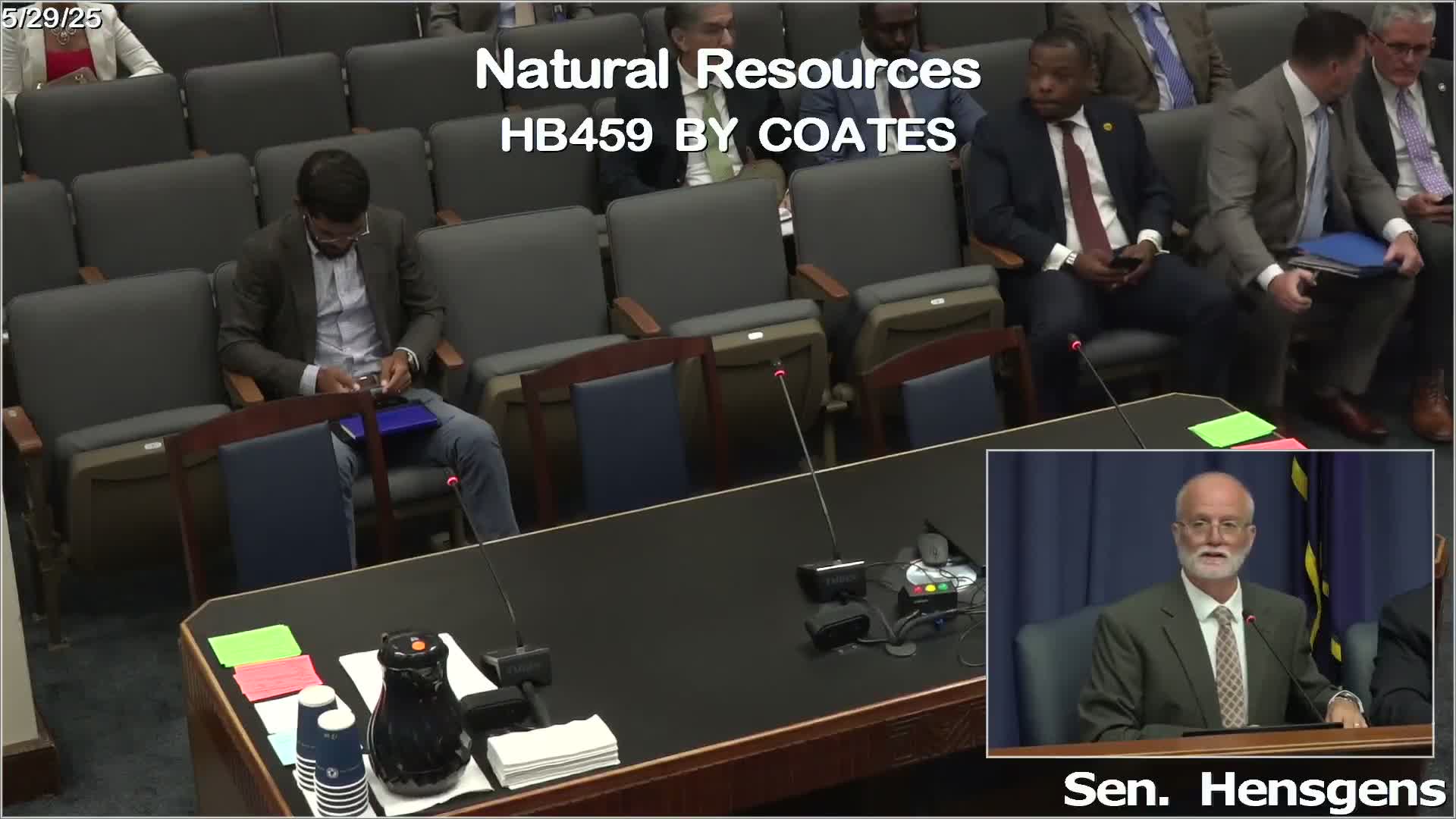Article not found
This article is no longer available. But don't worry—we've gathered other articles that discuss the same topic.
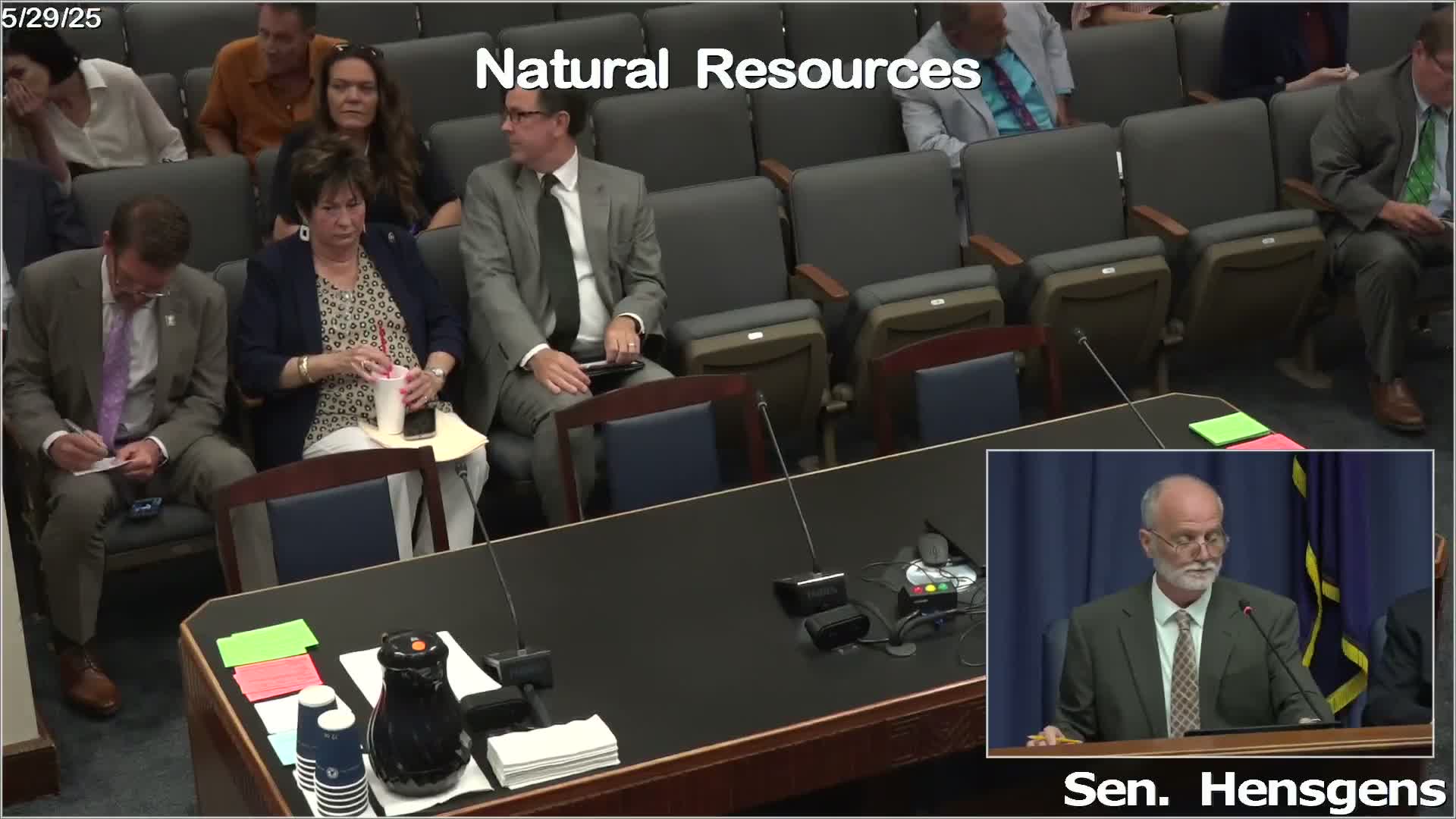
Panel approves small change to hunting license rules to permit mallard hunting on island reserve
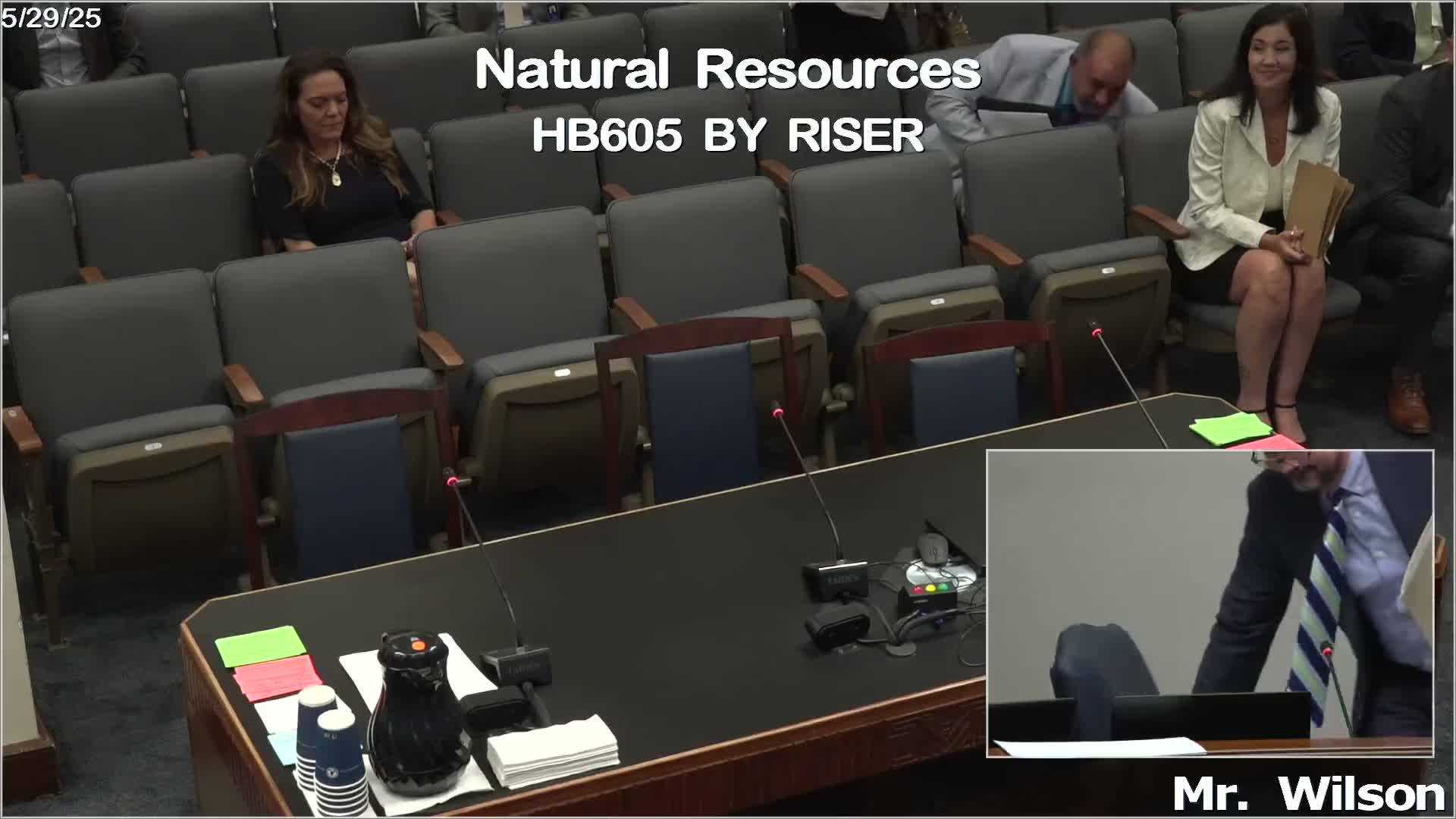
Committee approves amendment letting DENR charge direct-cost fee for expedited processing
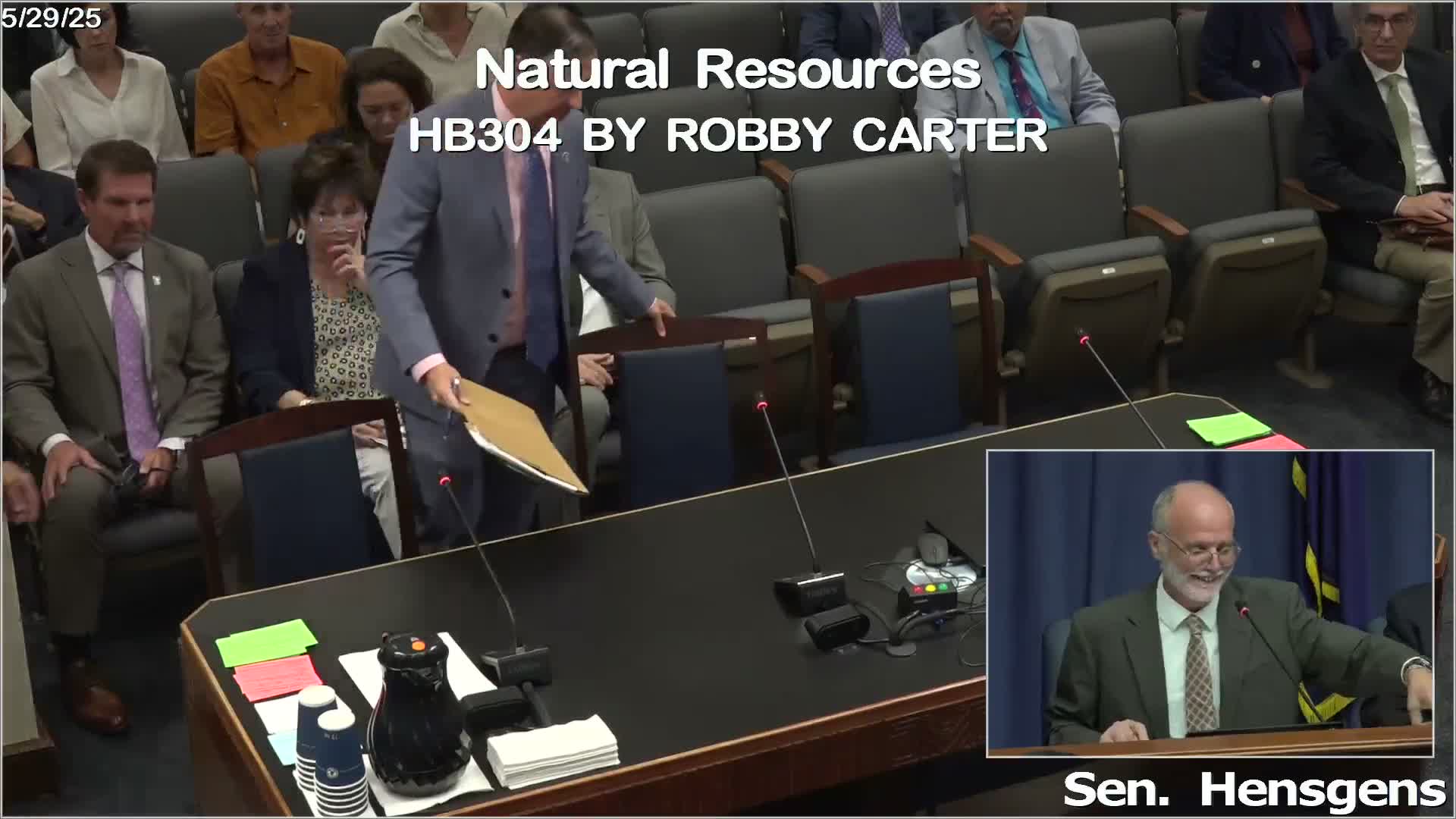
Committee advances bill letting charter-boat captains deliver catch to restaurants
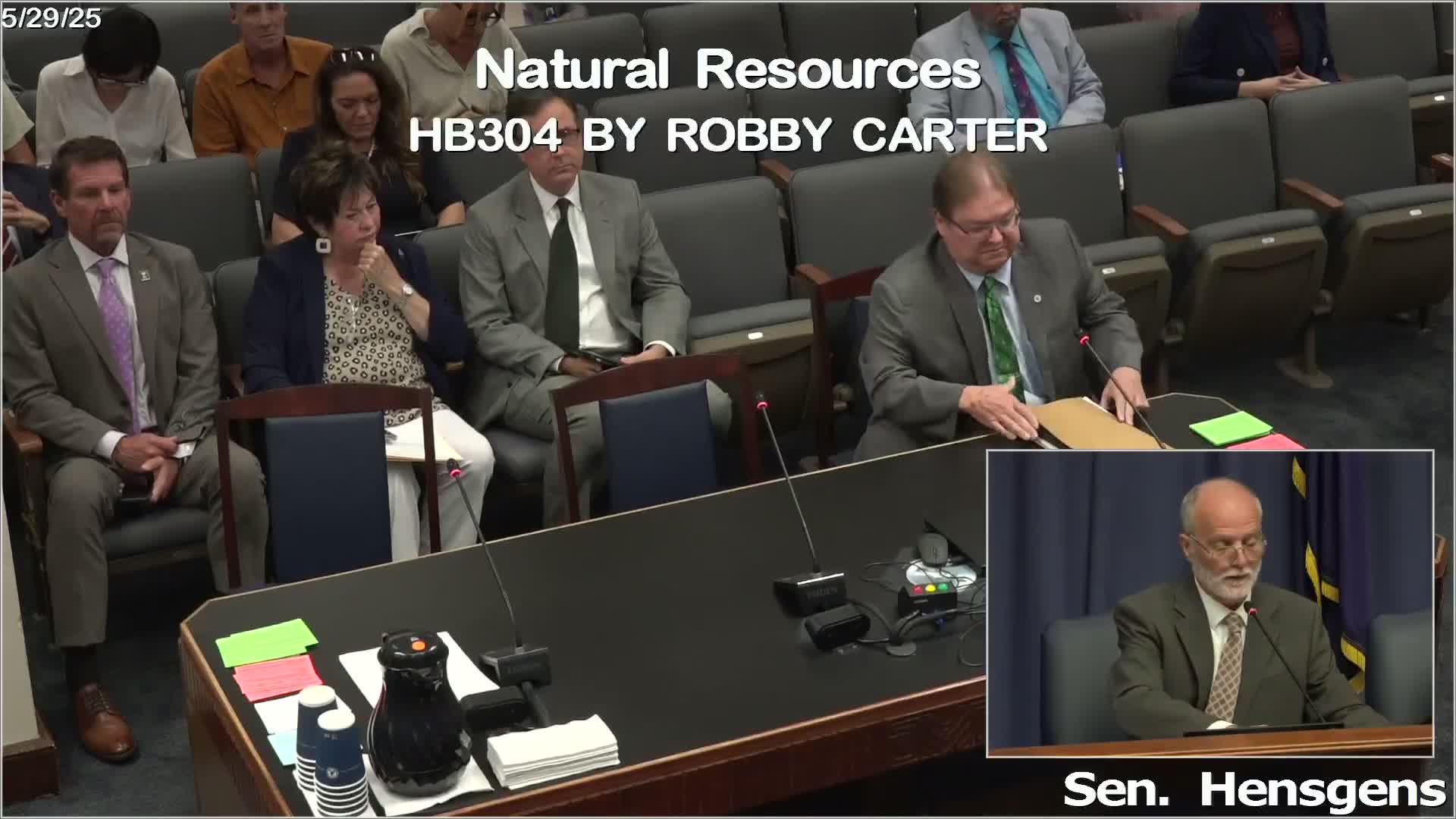
Panel approves bill clarifying venue for eminent domain in carbon-capture cases
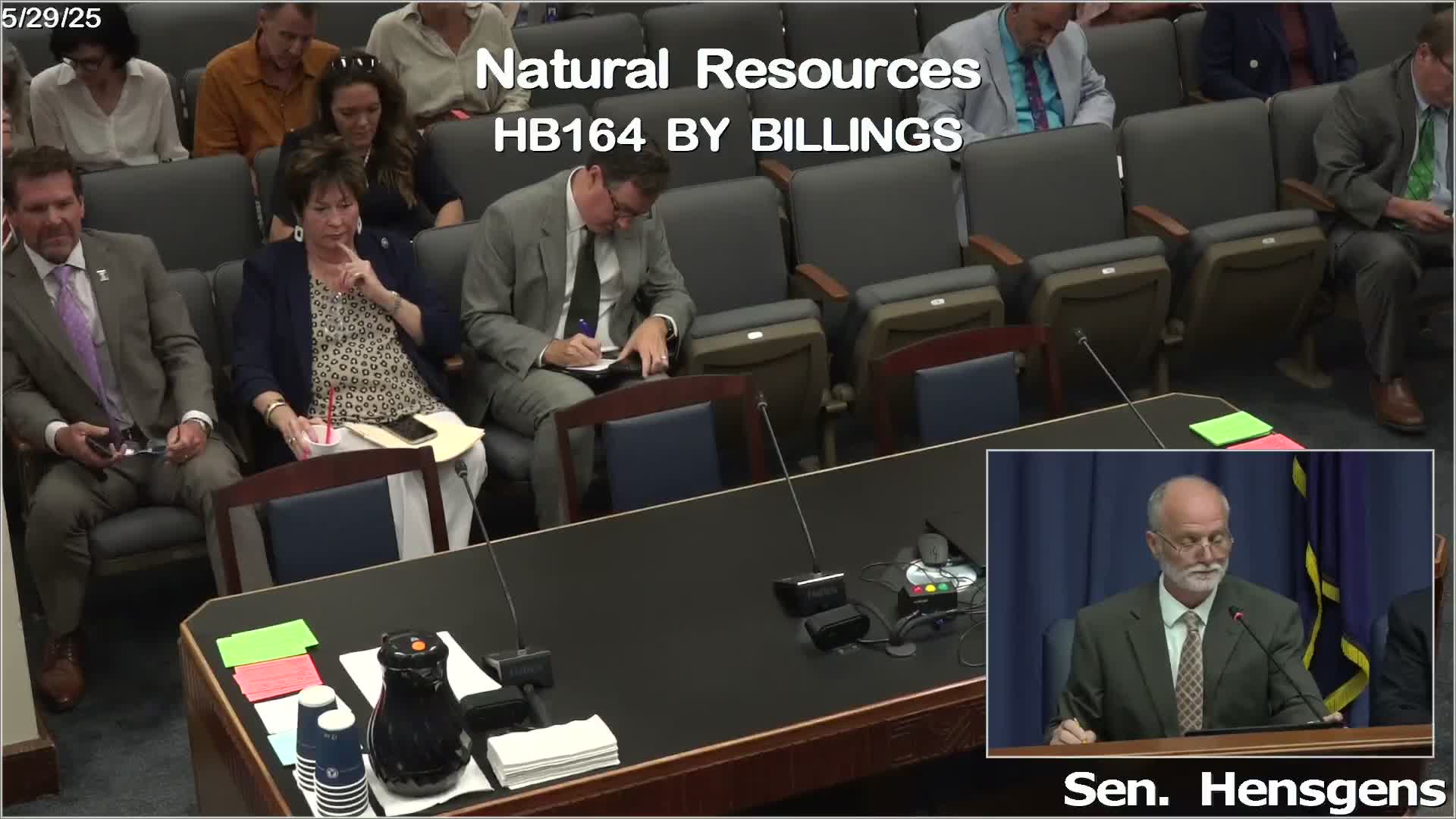
Committee backs resolution urging stronger FDA inspection of imported seafood
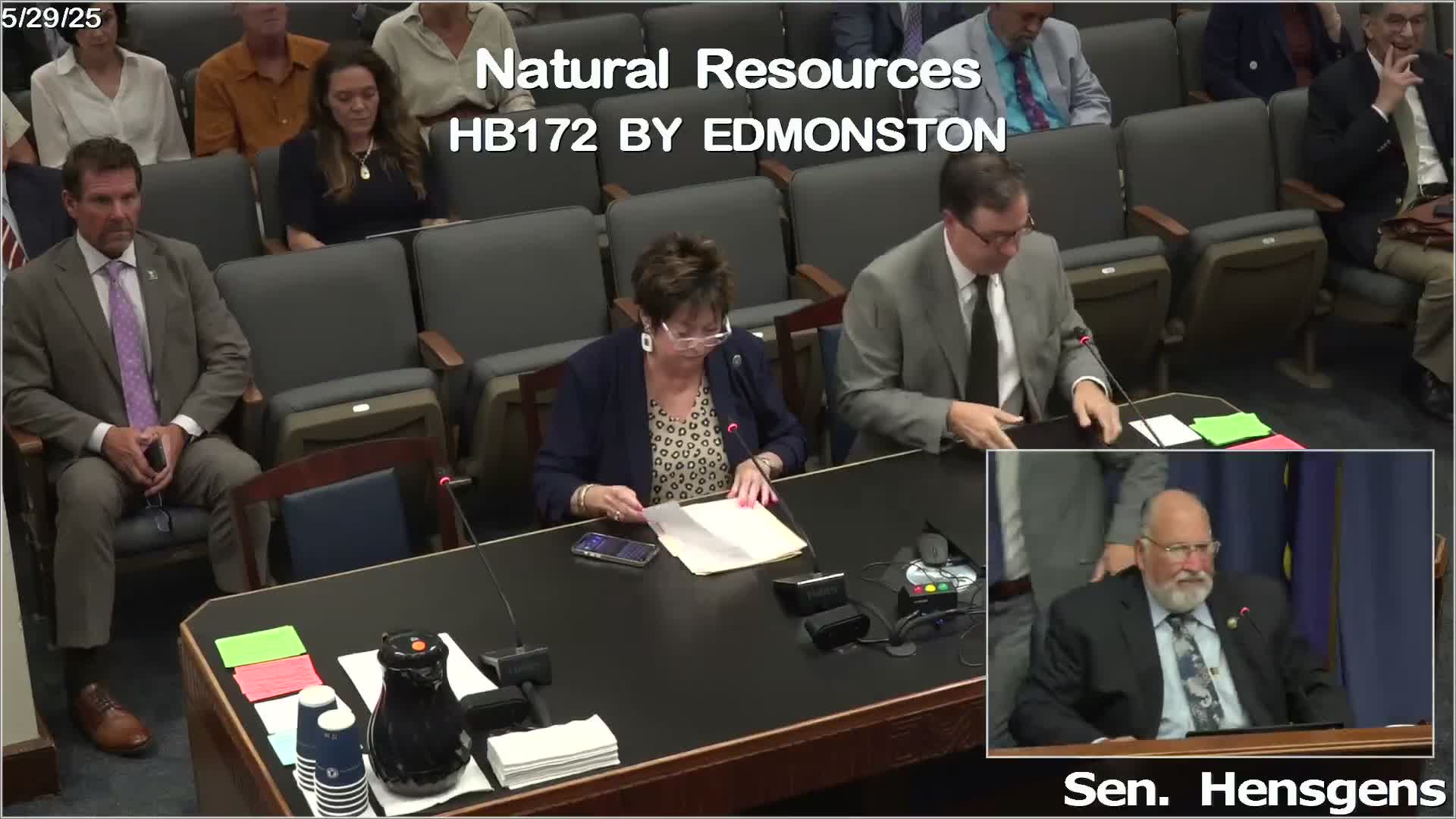
Committee narrows Scenic Rivers exemption to Bayou Manchac after conservation objections
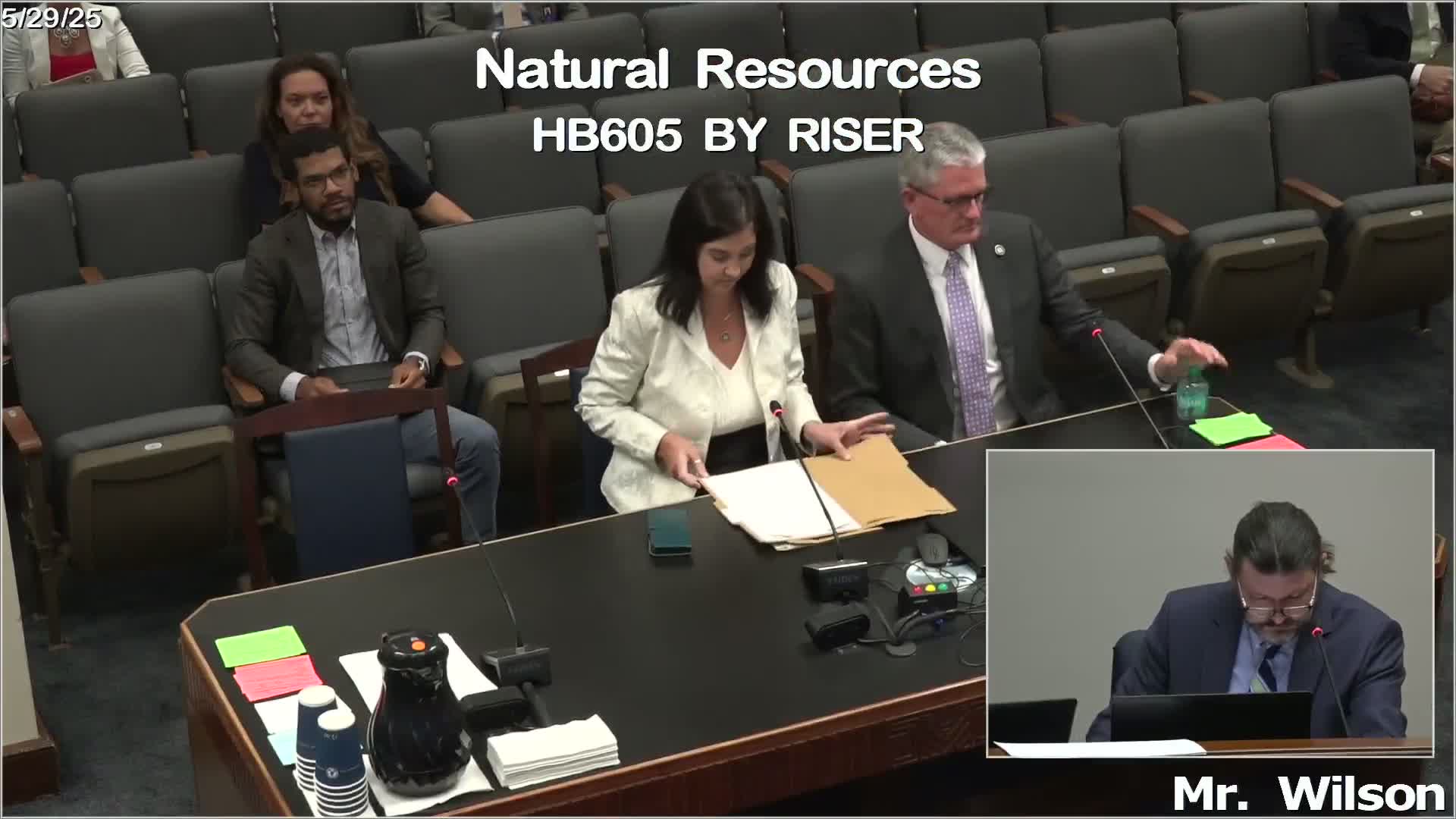
Committee adopts compromise framework for state solar permitting, preserves local opt-outs
